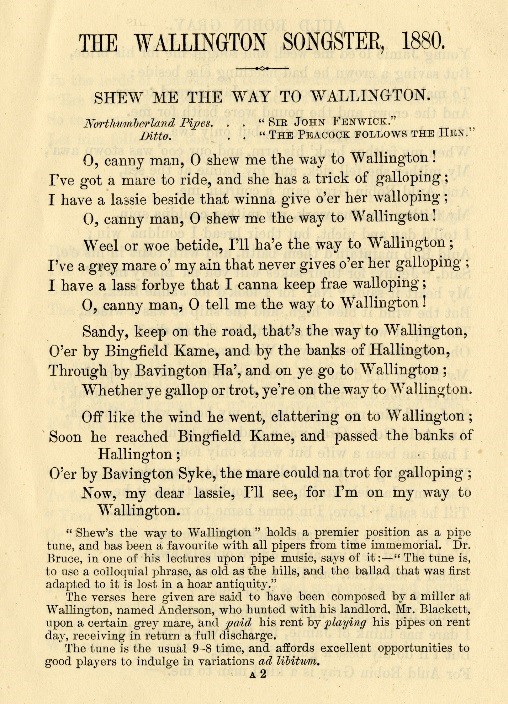Exhibition can be seen on Level 2 Exhibition Space, Philip Robinson Library, until October 2016
The lives of Sir Charles Philips Trevelyan and Molly Trevelyan, as shown through their family photograph and ephemera albums, from the Sir Charles Philips Trevelyan Archive.
‘Showing the Way to Wallington’ gives a unique insight into the family life of Charles Philips Trevelyan and Mary Katherine Bell, who in 1928 made Wallington Hall their home until it was gifted to the nation in 1941. The images and articles showcased in the exhibition covering areas such as Arts, Politics and War, and come from the family photograph albums which Charles and Mary (better-known as Molly), compiled themselves in scrapbook form.
As part of an ongoing project, 39 Volumes are being digitised and converted into an accessible online virtual book format called ‘Turning The Pages’ by Karen Atkinson, our digitisation assistant in Special Collections. This exhibition contains some favourite and striking images along with interesting facts discovered in the course of her work.
The panel above is the first of 6 display cabinets and features a preserved ‘perfect, six-bloomed Sweet Pea’, which was pressed between the pages of Volume 10 of the Trevelyan family albums in 1922.
Here’s how the sweet pea stem looks in the album
Page 49 of the same Volume (image below) contains a newspaper clipping (see left) dated November 1923 and written about a gathering at the Village Hall in Cambo to honour the outgoing needlework Exhibition Secretary, Mr. Edward Keith, on his retirement. Apart from his other talents such as wood-carving and bee-keeping, Mr. Keith was also a well-respected gardener at Wallington Hall. The article pasted into Volume 10 reads, “His work is excellent and artistic. His sweet peas are famous nationally. The Wallington garden is one of the best in our country.”
Sweet peas and the beauty of Wallington are also mentioned in ‘Wallington’ by Sir Charles Trevelyan – Its’ History and Treasures [6th ed.] published in 1950 (Edwin Clarke Local, Clarke 631).
Page 38 in the Out of Doors section in Its History and Treasures:
“In summer the place is gay with flowers. Wallington is famous for its sweet peas, and near the house they often grow in a great profusion of colour.”
Page 39 in The Garden section:
“Below may be found beds of roses, lilies, gladioli, etc, but above all sweet peas, which two generations of Wallington gardeners have made famous.”
Shew’s the Way to Wallington
 The exhibition title was inspired by a border pipe version of a tune called “Shew’s the Way to Wallington”, the manuscript of which is dated 1830, and was written by Robert Elliot Bewick, son of the famous naturalist and engraver Thomas Bewick (1753-1828).
The exhibition title was inspired by a border pipe version of a tune called “Shew’s the Way to Wallington”, the manuscript of which is dated 1830, and was written by Robert Elliot Bewick, son of the famous naturalist and engraver Thomas Bewick (1753-1828).
Below are the words to the song, found on page 3 of TREV/CET/76:





